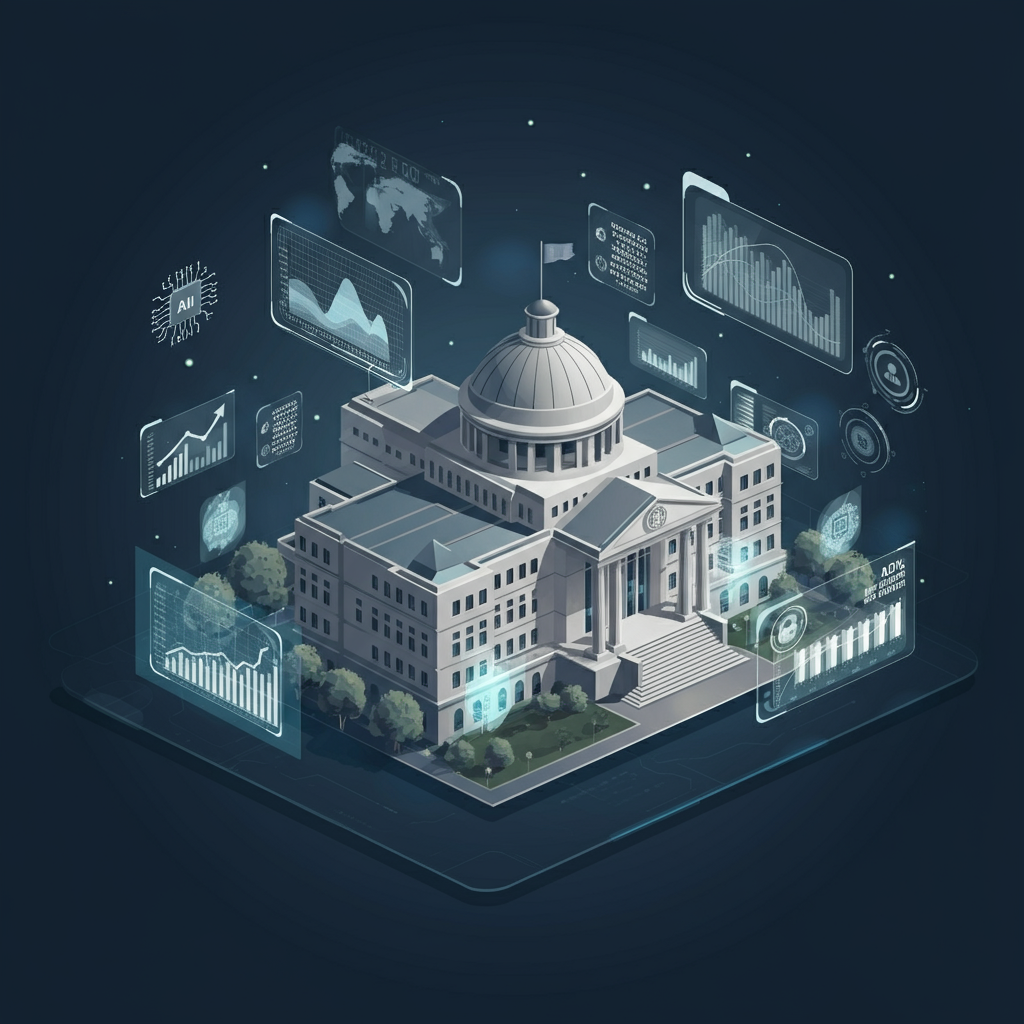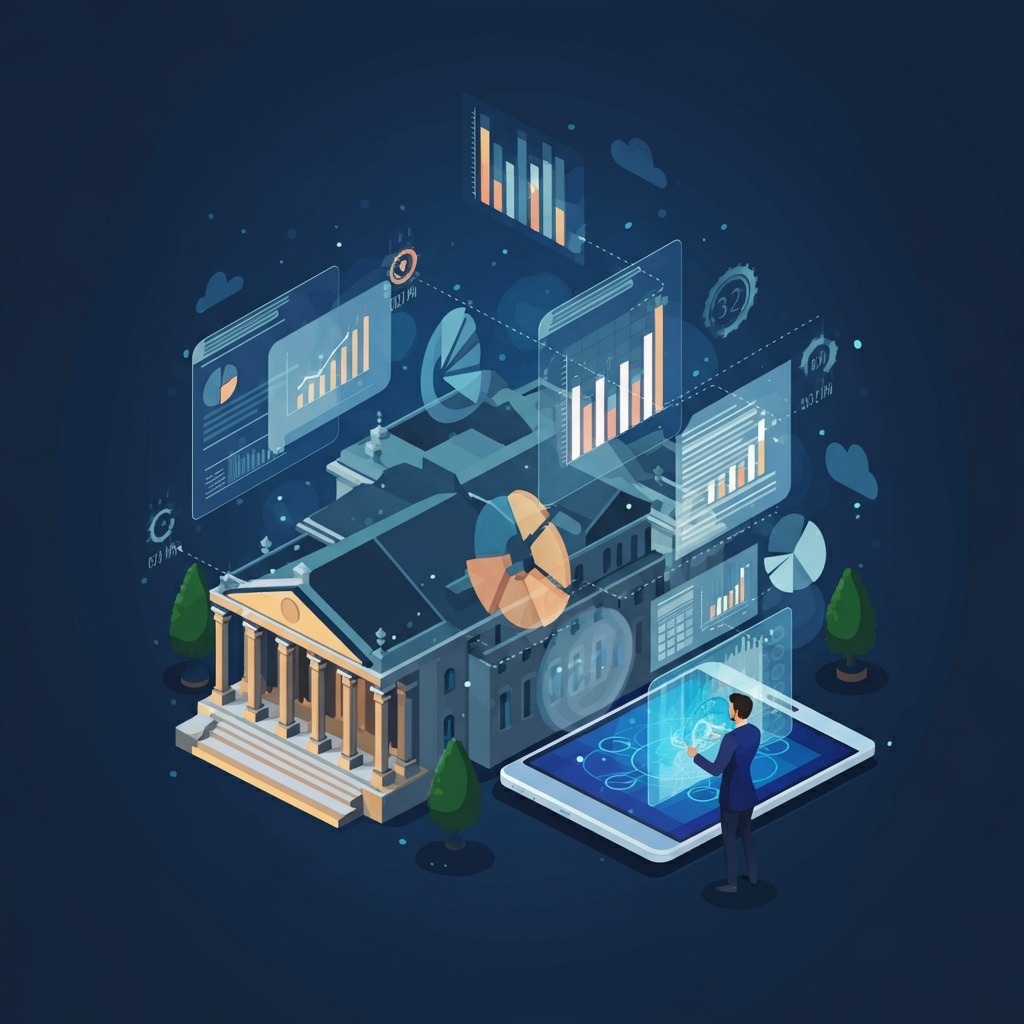Unlocking the Power of Data and Analytics to Revolutionize Public Programs
Governments today face an unprecedented challenge. From improving public services to crafting effective policies, they operate in increasingly complex environments. That’s where big data comes in. By harnessing big data and analytics, governments worldwide are transforming public programs to deliver better outcomes for their citizens.
This blog explores the role of big data in government, its impact on public services, real-world success stories, challenges, and the road ahead. Whether you’re a policymaker, data scientist, or a citizen intrigued by how your government uses data, this detailed guide offers invaluable insights.
Understanding Big Data in Government

Big data can be defined as large, complex data sets that require advanced analytical methods to extract meaningful insights. It is typically characterized by the three Vs:
- Volume: Massive amounts of data generated daily from public records, transaction logs, sensors, and social platforms.
- Velocity: The speed at which data is generated and processed for timely decision-making.
- Variety: The diverse types of information, from structured data (e.g., census reports) to unstructured data (e.g., social media posts).
Sources of Big Data in Government
Governments collect data from numerous sources, such as:
- Public Records: Census data, voter registration, and tax filings.
- IoT and Sensors: Traffic cameras, weather sensors, and public safety networks.
- Social Media: Platforms like Twitter for monitoring public sentiment and trends.
- Healthcare Systems: Medical records and vaccination data.
This data, when leveraged properly, helps unlock opportunities for governments to improve services significantly.
How Data and Analytics Power Public Programs

Improved Efficiency
Big data allows governments to streamline operations by eliminating redundancies and identifying inefficiencies. For instance, data integrations across departments can minimize duplication, whether it’s in tax systems, immigration processes, or public works. This results in cost savings and better resource allocation.
Enhanced Service Delivery
Data analysis enables personalized citizen services. Consider the use of AI-driven systems in welfare programs that analyze recipients’ specific needs to offer tailored support. Similarly, transportation departments can use real-time traffic data to optimize urban mobility.
Evidence-Based Policymaking
Gone are the days of trial-and-error policymaking. With big data, governments can measure the success of past initiatives and predict future outcomes. For example, predictive analytics in environmental programs can help plan for natural disasters and climate change mitigation.
Case Studies Successful Use of Big Data by Governments

Healthcare
Countries like the UK have utilized big data in their healthcare systems to reduce costs and improve patient outcomes. For example, the National Health Service (NHS) uses AI-driven tools to predict diseases such as diabetes and heart conditions, enabling early interventions and saving lives.
Public Safety
Police departments in cities like Los Angeles and Chicago use predictive policing to anticipate criminal activity based on historical data and patterns. These programs combine crime data with machine learning to deploy officers more effectively, leading to reduced crime rates.
Education
School districts in states like Georgia employ personalized learning platforms powered by student performance data. These systems pinpoint individual learning gaps and adapt lesson plans for better academic outcomes.
Each success story underscores the ability of government programs to improve lives when powered by data.
Addressing Challenges and Concerns

Privacy Issues
Data privacy tops the list of concerns when it comes to big data in government. Citizens expect their personal information to be handled with utmost care. Governments need to align their programs with global regulations such as GDPR while ensuring transparency about how data is used.
Ethical Considerations
Bias in algorithms can perpetuate inequality. For example, predictive policing tools may reflect existing systemic biases, raising ethical questions. Governments must validate data models and include diverse teams to avoid these pitfalls.
Data Security
Government institutions are prime targets for cyber-attacks. Robust cybersecurity protocols, encryption, and partnerships with cybersecurity experts are essential to protect sensitive information and maintain public trust.
The Future of Big Data in Government

Emerging Technologies
Technologies like AI, machine learning, and the Internet of Things (IoT) will soon redefine how governments operate. AI’s ability to analyze data in real time will allow for smarter decision-making and more agile public services.
Innovation Opportunities
Future cities will be smarter, leveraging IoT devices to monitor everything from water usage to air quality. Proactive governance will rely on real-time data to address issues before they escalate—for instance, deploying resources to areas predicted to have outbreaks of disease.
Recommendations for Policymakers
To fully realize the potential of big data, governments should:
- Invest in modern data infrastructure.
- Foster public-private partnerships to accelerate innovation.
- Train employees in data literacy to manage analytics tools effectively.
Empowering Public Programs Through Big Data

Big data has become a driving force in reshaping government operations worldwide. By harnessing data analytics, policymakers can make informed decisions, improve public services, and use resources more efficiently. However, to truly unlock its potential, it’s essential to address challenges head-on, maintaining ethical use and robust security.
Whether you’re a government official aiming to streamline services or a data enthusiast exploring its applications, big data is the key to future-proof governance.
Curious to learn more about leveraging big data in your organization? Join the conversation, and let’s explore how data can drive smarter solutions together.



